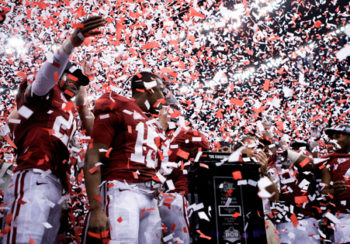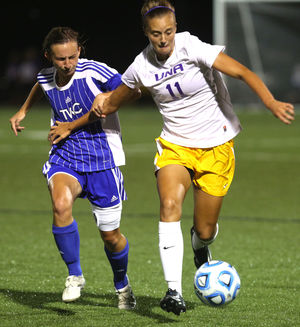
Most parents and students have very little understanding of what actually happens in a college admission committee and the ways that each application is evaluated. Admission personnel track and rate applicants on the following set of typical measures. Below is a standard matrix of importance, but in no way should you assume that our matrix is the exact matrix upon which your child will be measured at any single prospective school. As mentioned before, the priorities change from year to year as student demographics and college administration priorities change.
1. Special Talents or Skills
This is the first and most important matter to every college in America. Beyond actual grades, colleges want to attract the most talented academic minds they can get their hands on. Every college in America wants the student who has already collaborated with NASA on research related to space travel, even if he or she is a C student or worse!
Performing arts superstars are equally sought after, like the young woman who has been dubbed the next Maria Callas and is performing with the NY Metropolitan Opera while attending high school. Colleges want the top talents in academics, performing arts, and athletics and those will be the first priority for any admission staff.
 While celebrity is not a skill or talent, fame is just as much a priority for college admission personnel, so admitting the children of famous or powerful parents is an equally high priority.
While celebrity is not a skill or talent, fame is just as much a priority for college admission personnel, so admitting the children of famous or powerful parents is an equally high priority.
2. Geographic Origin, Race, Ethnicity, and Socio-Economic Background
These are not quite as important as special talents or skills, but are of very high importance to admission staff. Colleges want to build their name and reputation in as many areas as possible within America and across the world. Attracting students from every domestic region and foreign country is of interest to every college development and PR staff and thus is important to admission personnel.
Further, universities want to appease their alumni, donors, and regulators, so building a racially, ethnically, and socio-economically diverse campus is a priority. Public universities are under huge pressures from state and federal governments to serve under-represented and underprivileged students. Private universities face donor pressures to not be seen as homogeneous or strictly as places for privileged students.
One key piece of information to keep in mind here: students from the same high school often apply to the same small group of schools as their classmates. Most often, this works against their chances of admission, as colleges are loathe to take more than 1 or 2 students from the same high school (except for local public universities). The same is true across the Houston region. Most middle class students apply to the same small group of 25 or so universities and therefore hurt their chances of admission.
3. Grades in Core Academic Subjects and Quality of Coursework
Admission staff believe that half of the school day is spent in classes that do not often demand much work or brainpower, so they discount the impact of grades in electives. Grades in English, Math, Science, and History/Social Science courses and Foreign Language classes are typically pulled out and evaluated separately from the student’s overall GPA.
Similarly, the quality of the coursework, whether the course was AP/IB or dual credit, if offered is of great importance. Admission people prize students who challenge themselves by taking the most difficult and in-depth coursework.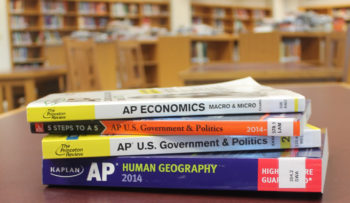
The grades in courses related to the student’s identified college major are of great importance as well. In STEM majors, admission personnel will pay close attention to grades in math and science courses. Strong math and science grades can offset lower grades in other coursework. Similarly, a prospective English major can offset B grades in math and science with high marks in English and history courses.
4. SAT/ACT Scores and SAT Subject Scores
The SAT and ACT measure overall academic ability and there is a strong positive correlation between standardized test scores and college GPA. Furthermore, SAT Subject Test scores are validation of the student’s grades in the related subject area. For example, if a student has a B average in AP Physics, but acquires a 750 on the SAT Physics Test, then admissions can be certain that the quality and challenge of the curriculum at the student’s high school is high. Admissions staff have trouble evaluating the quality of similar coursework at different schools and high SAT Subject Test scores validate that a student has real mastery of the subject.
5. Application Essays
In some ways the application essay is the most important element of the application because any particular college typically attracts applicants that are very similar in grades and SAT/ACT scores. The essay is thus the only way to separate candidates and identify those who have the intangible qualities of maturity, insight, creativity, and honesty that admission staffs prioritize.
Written expression is of critical importance to college admission personnel. It is no understatement to say that an applicant’s essays will get them accepted or knock them out of the running. If your child does not write highly detailed, personal, and interesting essays, then his or her chances of admission at moderately to highly competitive colleges go way down.
6. Academic and Career Pursuits Outside of Class
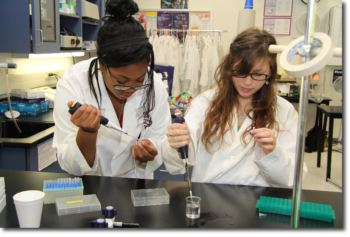
This measure has gone way up in importance over the last several years. As college admissions gets ever more competitive, admission staffs have determined that students who pursue academic and career activities outside of class outperform their peers when they arrive on college campuses. If you want to boost your child’s college admission prospects, identify their favorite and strongest academic areas and curiosities and help your kid get involved with related out of class pursuits.
In this domain, research and identification of future majors and careers is crucial. Applicants want to start connecting their high school activities to their future path of study or work by 10th grade. It is not that admission staff believe 10th graders should have already chosen an exact future major and career. Rather, the expectation is that students should start experimenting and participating in academic and career activities as a sign of the student’s intellectual curiosity and passion. Pursuit of academic or career-related engagement out of class is the number one sign of a serious and committed student.
7. Breadth of Life Experiences
College administrators are very concerned about the current generation of new college students. Their academic and extra-curricular records have never been stronger, yet they are lacking in critical domains. Very few students in the current generation have demonstrated independence and realized their interests and passions on their own, outside of the reach of parent or school influences. If your child can demonstrate his or her independence and maturity by challenging themselves with uncomfortable self-generated experiences, then he or she will win major points with admission staff.
Examples are activities such as: playing drums for an unknown touring rock and roll band; teaching prisoners how to read, add, and subtract; traveling to South America to build sanitary systems in rural and impoverished towns; or undertaking a cultural exchange with a Kenyan school and family.
8. Class Rank, Overall GPA

Because of game-playing by high schools, parents, and students, these elements are of lower importance today than in years past, except for those colleges that have auto-admission formulas based on class rank or grade point average. Admission personnel are well-aware of how students and parents manipulate course choices to advance their class rank and overall grade point average.
Further, the quality and challenge level of elective courses has great variation across high schools so admissions staff take the perspective that such grades are close to meaningless in most cases. Additionally, many high school schools do not rank their students and have obscure formulas for calculating GPA. All of this manipulation is seen as deceitful and is therefore eliminated or lowered in importance in the admission decision making process.
9. Special Achievements and Awards
If your son or daughter wins prizes in state or national academic or arts competitions, these carry real weight with admissions staff, particularly if the award is related to the prospective major.
Awards for academic performance that are voted on by high school teachers and administrators are also particularly impressive. Students voted as a school’s top French or Physics student or Citizen of the Year by teachers and staff win points with admission staff.
The Eagle Scout award, the Girl Scouts Gold Award, and awards for FFA, athletics, and debate also catch the eye of admission personnel.
10. Community Service/Extra-curricular Activities
Where once, service to the community was somewhat exceptional, today community service is expected of every middle class student in the U.S. Unless your son or daughter is going way above and beyond the usual service hours to the community, this component will not have much impact on your child’s chances of admission.
The same is true with extra-curricular activities. Because of rampant resume padding, admission staffs cannot easily distinguish which extra-curricular activities are meaningful and which are exaggerated. Common in-school activities like sports teams and performing arts groups do not make big impact on an applicant’s resume unless the applicant will pursue the activity in college. Participation in high school clubs has little value for today’s applicants.
If your child creates a special project outside of the usual outlets at churches and synagogues, local non-profits, or on-campus organizations, then your child can use community service or an extra-curricular activity as a shining star on the resume. Students who have created exceptional projects like: starting a local sketch comedy troop and performing at coffee houses; sending school supplies and clothes to victims of natural disasters in Asia and the Caribbean; or creating a free after-school tutoring service for underprivileged students at their former elementary school, have gotten very positive responses from admission staff over recent years.
Other measures of some importance: Interviews (where possible), recommendations (especially if your child attends a private high school), progression of performance (upward slope of grades over the 11th and 12th grades), extenuating circumstances (special difficulties that the student has faced).

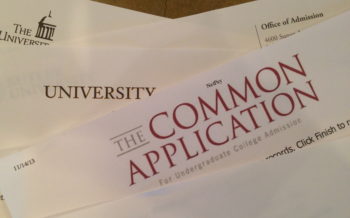
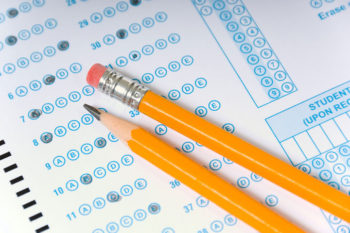
 With a detailed plan of attack, your child can easily reach the colleges of his or her dreams. Those who have started strong have a leg up, but will need to finish with gusto. Sub-par performance in 9th and 10th grade can be offset with better results in the remaining years of high school. If your son or daughter acquires the guidance and support needed to complete all of the steps laid forth, then he or she will reach the desired destination. Procrastination and denial will lead to disappointment at college acceptance time. The time for reality is here; the best opportunities will go to those who distinguish themselves in 11th grade. The others will join the masses and leave their future to the whims of chance.
With a detailed plan of attack, your child can easily reach the colleges of his or her dreams. Those who have started strong have a leg up, but will need to finish with gusto. Sub-par performance in 9th and 10th grade can be offset with better results in the remaining years of high school. If your son or daughter acquires the guidance and support needed to complete all of the steps laid forth, then he or she will reach the desired destination. Procrastination and denial will lead to disappointment at college acceptance time. The time for reality is here; the best opportunities will go to those who distinguish themselves in 11th grade. The others will join the masses and leave their future to the whims of chance.












